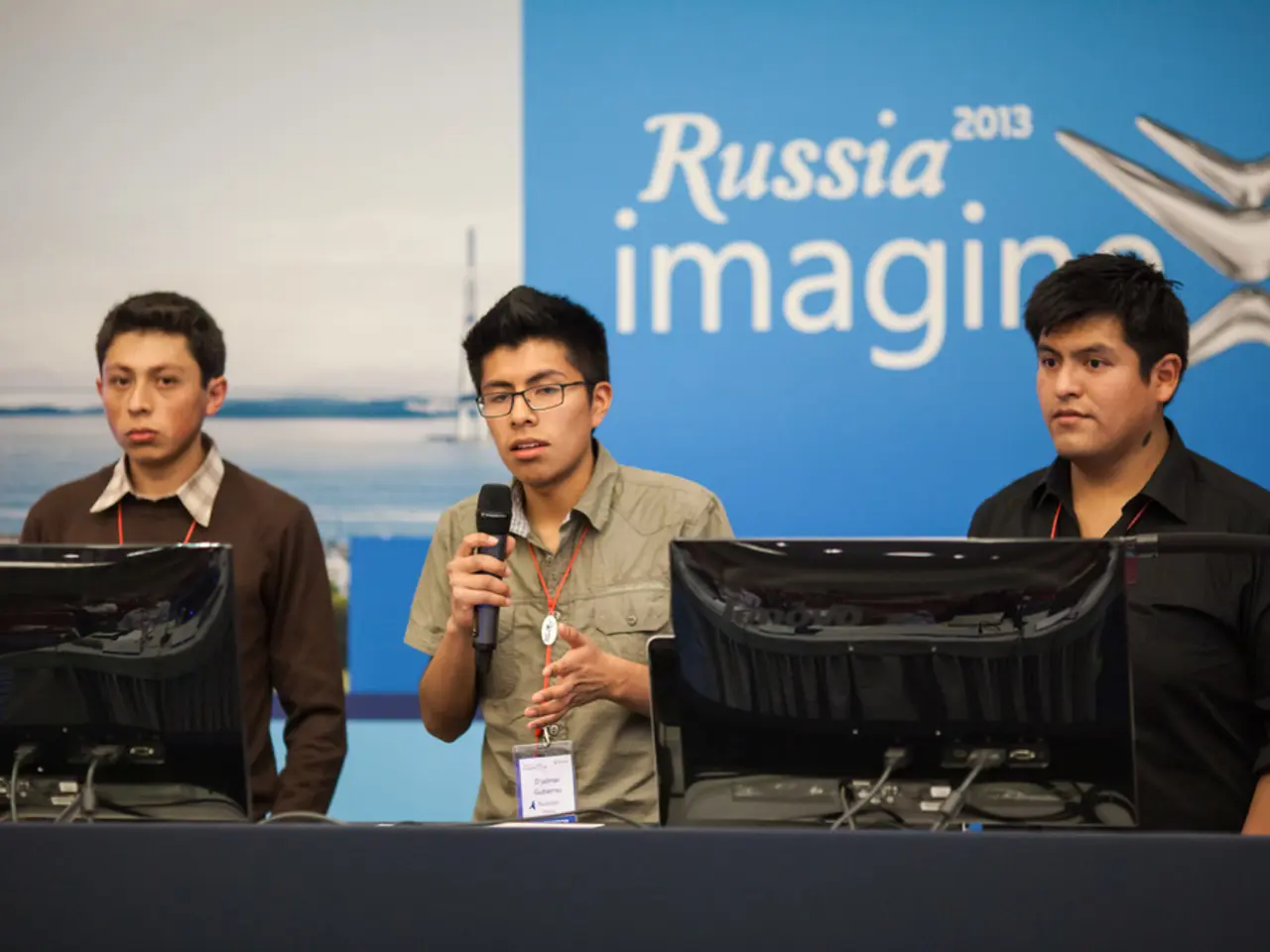Nvidia's CEO, Jensen Huang, asserts no proof of AI chip redirection exists.
In a move aimed at safeguarding national security, the U.S. Congress is contemplating legislation that would require companies to enable geo-tracking on high-end gaming and AI GPUs. This comes as a response to concerns about the smuggling of these advanced technologies, particularly Nvidia's Grace Blackwell chips, to countries where their sale is prohibited.
Currently, the U.S. legislative framework allows Nvidia to sell certain AI chips, such as the H20 model, to China under strict conditions. These conditions include a 15% revenue remittance to the U.S. government and adherence to export performance thresholds that exclude advanced chips like the Blackwell-class. This represents a partial relaxation of previous export bans designed to limit China’s advancement in AI while maintaining U.S. national security and technological leadership.
However, there have been reports of Nvidia AI GPUs getting past Washington's sanctions and reaching Chinese businesses. To combat this, the proposed legislation would aim to prevent the smuggling of advanced GPUs to countries where their sale is prohibited.
The concern about smuggling extends beyond Nvidia's Grace Blackwell chips. Chinese entities have been using corporations registered in neighboring countries like Malaysia, Vietnam, and Taiwan to order advanced GPUs and then reroute them to China. Malaysian imports of advanced GPUs surged by over 3,400% early this year, raising alarm bells. In response, Singapore has started cracking down on this practice.
The potential implementation of geo-tracking on high-end GPUs is not without its challenges. Nvidia CEO Jensen Huang stated at Computex 2025 that there is no evidence of AI chip diversion to countries where the sale of said chips is prohibited. However, Huang mentioned that the size of the Grace Blackwell system makes it difficult to be hidden or easily transported.
Despite Huang's claims, there have been reported instances of smuggled H200 GPUs. The size and weight of the Grace Blackwell servers are significant, making them potentially easier to track. The amount of money involved in GPU servers makes them attractive targets for smuggling.
As the U.S. grapples with these issues, it remains cautious about granting broad executive authority to make such deals without clear security vetting. The legislative measures being considered include export controls with revenue sharing and national security concerns.
China's reaction to these developments is complex. While publicly expressing skepticism and security concerns, China appears to be making efforts to foster homegrown AI capabilities from companies like Huawei while managing international pressures.
In summary, the U.S. is taking steps to combat the smuggling of advanced GPUs, including Nvidia's Grace Blackwell chips, to countries where their sale is prohibited. This move is part of a larger effort to safeguard national security and maintain technological leadership in a fast-evolving technological landscape.
Read also:
- Industrial robots in China are being installed at a faster rate than in both the United States and the European Union, as the global market for these robots faces a downturn.
- Stock markets in India anticipated a moderate opening, influenced by mixed signals from global markets.
- Tesla's Model Y ride-sharing service halts operations in New York City
- Experienced a 4,000-mile journey in my 2025 Lexus GX 550 on Trail, found the vehicle packed with power, yet the infotainment system exhibited a disconcerting habit of resetting my personal settings arbitrarily.




